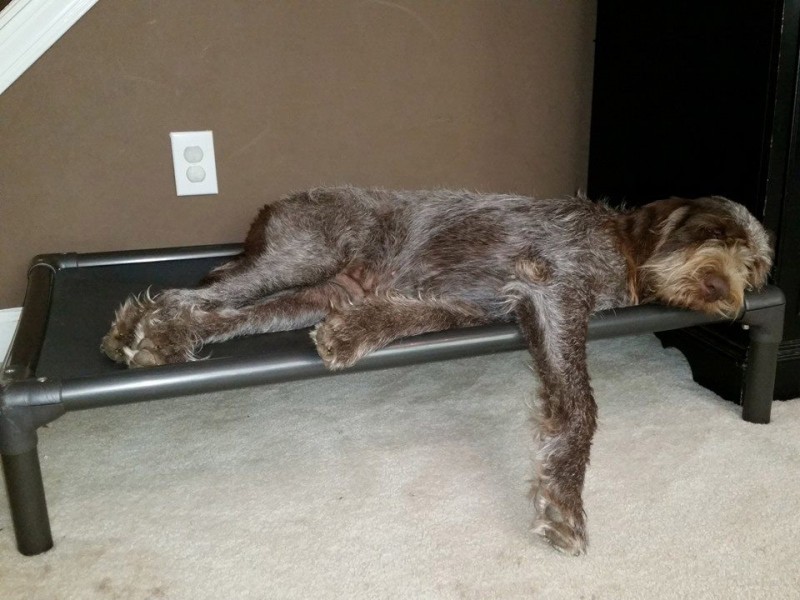Helping Your Senior Dog Sleep Better
Posted by Jenn on 03/30/2016
“Blessed is the person who has earned the love of an old dog.” Sydney Jeanne Seward
Just like their human counterparts, elderly dogs may have trouble sleeping through the night. If your senior dog’s pacing and whining is keeping your family up at night, try the following tips to help him be more comfortable at bedtime.
What You Can do to Help Your Senior Dog Sleep Through the Night
-
Stick to a routine, including exercise.
Routines are reassuring for dogs, especially older dogs. Don’t make the mistake of assuming that your elderly dog needs no exercise at all. He may have lost interest in the dog-park shenanigans of his youth, but a short evening walk can still do wonders for his sleep. -
Add a nightlight in your dog’s sleeping area and nearby hallways.
If you suspect your dog’s vision is weakening with age, a nightlight may help make him feel more secure. -
Get your dog an elevated orthopedic bed.
Senior dogs are more likely to have general aches and pains, or chronic conditions such as arthritis. An orthopedic bed will help relieve pressure on bones and joints. In addition, elevated beds are easy for senior dogs to get in and out of – your dog won’t sink to the floor, as he would on a pillow bed. Senior dogs may also have a hard time regulating their body temperature, so consider moving the bed near a heating source if you think your dog is cold. -
Play calming sounds.
Sometimes senior dogs become anxious at night because they can’t identify strange noises. You can help make your dog feel more relaxed by masking those sounds with soothing classical music (you can even buy music specifically for dogs!) or a noise machine.
When to Consult a Vet
While changes in sleep and other habits can be part of the aging process, they can also signal a medical problem that should be diagnosed by a vet. Sadly, dogs can get cancer and dementia like people do. You shouldn’t assume the worst, though – sleep disruption can also be caused by entirely treatable conditions, like a urinary tract infection or even fleas! A short round of medication could be all your dog needs to sleep through the night again.
See a Vet if Your Senior Dog
- Wanders around aimlessly or stares into space
- Startles more easily
- Doesn’t seem to recognize familiar people or commands
- Has accidents in the house, or seems to have trouble “holding it” until outside
- Loses weight or interest in eating
- Drinks a lot more water than usual
With a little extra care and patience, you can help your devoted buddy live out his twilight years in peace and comfort.
Did your senior dog have trouble sleeping through the night? We’d love to hear your tips. Share what worked for you!


